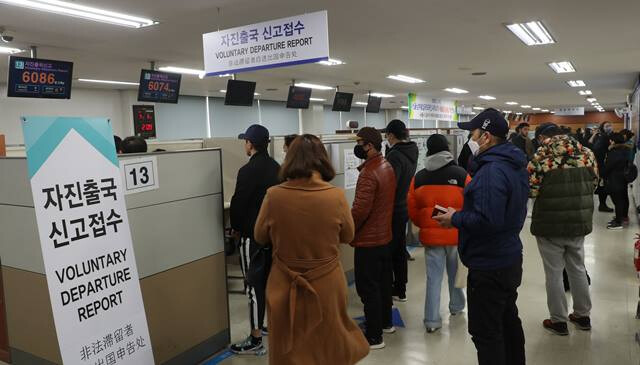
South Korea's decision to integrate overseas Korean visas marks a significant turning point in its labor policy. The move, aimed at alleviating chronic shortages in critical sectors like construction and manufacturing, will allow approximately 550,000 F-4 visa holders to engage in simple labor. While this initiative promises to legalize currently overlooked illegal employment and inject much-needed manpower into struggling industries, it also raises a host of concerns that demand careful consideration.
The integration of the H-2 and F-4 visas, effectively removing employment barriers for overseas Koreans, is a pragmatic response to the nation's pressing labor needs. However, the potential for an accelerated influx of foreign workers, particularly in the construction sector, cannot be ignored. The government must address the potential for wage depression and ensure fair labor practices to protect both domestic and foreign workers.
A particularly sensitive issue is the potential strain on the national health insurance system. Unlike the H-2 visa, the F-4 visa allows family invitations, which could lead to a significant increase in beneficiaries. Historical data, revealing deficits in health insurance finances among certain foreign national groups, underscores the need for proactive measures. The government must implement robust financial planning and monitoring to prevent undue burdens on the system.
Furthermore, the concentration of foreign workers in simple labor sectors raises concerns about potential social integration challenges. Strategies to promote cultural exchange and integration are essential to foster harmonious coexistence.
The government's decision is a delicate balancing act. While addressing labor shortages is crucial for economic stability, it must be done in a way that safeguards the welfare of all residents and maintains the integrity of national systems. Thorough reviews, robust countermeasures, and transparent communication will be key to navigating this complex policy shift.
In conclusion, South Korea's visa integration is a bold move that reflects the nation's evolving demographics and economic needs. However, its success hinges on the government's ability to mitigate potential risks and ensure a fair and sustainable labor environment for all.
[Copyright (c) Global Economic Times. All Rights Reserved.]






























